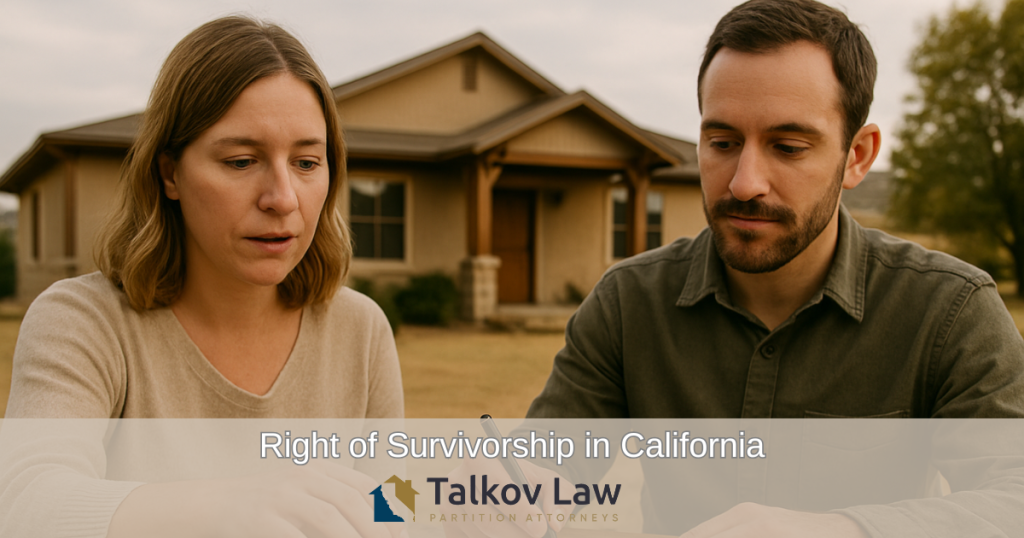Santa Rosa Co-Ownership Disputes
Our team of partition attorneys in Sonoma can assist co-owners with frequently asked questions about partitions, such as:
- Can a partition action be stopped? Generally, a partition action cannot be stopped, but a defendant may be able to buy time to seek a resolution. Eventually, however, the plaintiff can generally force the sale of the property based on the absolute right to partition.
- When is a partition action right for my dispute? Generally, parties who can reach their own resolution of a co-ownership dispute are not reading websites about partition law. If you are reading this article, chances are that your co-ownership dispute has reached a level where legal options are being considered. Filing a partition action will bring about a certain result to the co-ownership dispute, rather than letting it linger for years on end. However, if the parties are very close to a settlement, it may be wise to consider a resolution.
- What to expect in a California partition action? Partition actions necessarily resolve the conflict between co-owners through an expedited statutory process. A capable partition attorney will assist in expediting the process and producing the most favorable outcome.
- How long does a partition action take in California?” Most partition actions are complete in 3 to 6 months because most cases settle in either a buyout or agreed sale. However, some cases can drag on for 6 to 12 months.
- What are the different types of partition in California? Almost all partition actions are partition by sale, though partition in-kind allows the property to be divided, while a partition by appraisal allows the purchase by one-co-owner at an appraised value.

Our Santa Rosa Partition Attorneys Know Sonoma County
Santa Rosa is a city in Sonoma County, California, located in the North Bay region of the San Francisco Bay Area. It is the county seat of Sonoma County and the fifth-largest city in the Bay Area. Santa Rosa is known for its natural beauty, with rolling hills, vineyards, and redwood forests. The city is home to a vibrant arts and culture scene, with numerous galleries, museums, and performing arts venues. Santa Rosa is also a popular destination for outdoor recreation, with numerous parks, trails, and lakes. The city is also home to a number of wineries and breweries, making it a great destination for wine and beer lovers.
Santa Rosa, California is located in Sonoma County and is the largest city in the county. The area was first inhabited by the Pomo people, who lived in the area for thousands of years before the arrival of Europeans. The first Europeans to settle in the area were Spanish missionaries in the late 18th century. The area was then part of Mexico until 1848, when it became part of the United States after the Mexican-American War. In 1847, the area was named Santa Rosa by Don Salvador Vallejo, a Mexican soldier and rancher. The city was officially incorporated in 1868 and was the first city in Sonoma County. In the late 19th century, Santa Rosa became a popular tourist destination due to its mild climate and natural beauty. The city was also home to several wineries and was known for its agricultural production. In the early 20th century, Santa Rosa experienced a period of rapid growth and development. The city was home to several large companies, including the Santa Rosa Canning Company and the Santa Rosa Creamery. In the late 20th century, Santa Rosa experienced a period of economic decline due to the closure of several large companies. However, the city has since experienced a resurgence in recent years, with a growing population and economy. Today, Santa Rosa is a vibrant city with a diverse population and a thriving economy.
Cooley v. Miller & Lux – Partition Action Case Study
In the legal case of Cooley v. Miller & Lux, 168 Cal. 120 (1914), the issue of partition was at the center of the dispute. The case involved a dispute between two co-owners of a ranch in California. The plaintiff, Cooley, sought to partition the ranch, while the defendant, Miller & Lux, argued that the ranch was not subject to partition because it was held in joint tenancy. The court ultimately ruled in favor of Cooley, finding that the ranch was subject to partition because it was held in tenancy in common, not joint tenancy. The court also held that the partition should be made in accordance with the wishes of the parties, and that the court should not interfere with the partition unless it was necessary to protect the rights of the parties.
Contact an Experienced Partition Attorney in Santa Rosa, California
If you want to end your co-ownership relationship, but your co-owner refuses, a partition action is your only option. Our experienced partition lawyers serving Santa Rosa have years of experience ending co-ownership disputes in California and can help you unlock the equity in your Sonoma County property. For a free, 15-minute consultation with a knowledgeable partition attorney at Partition Lawyer California, call (707) 777-6600 or fill out a contact form online.
Contact us Today for a Free Consultation with a Partition Attorney in Santa Rosa, California
Our partition attorneys in Santa Rosa also serve Rohnert Park, Windsor, Sebastopol, Healdsburg, Petaluma, Sonoma, Rincon Valley, Fountaingrove, Bennett Valley, Oakmont, Roseland, and St. Helena





